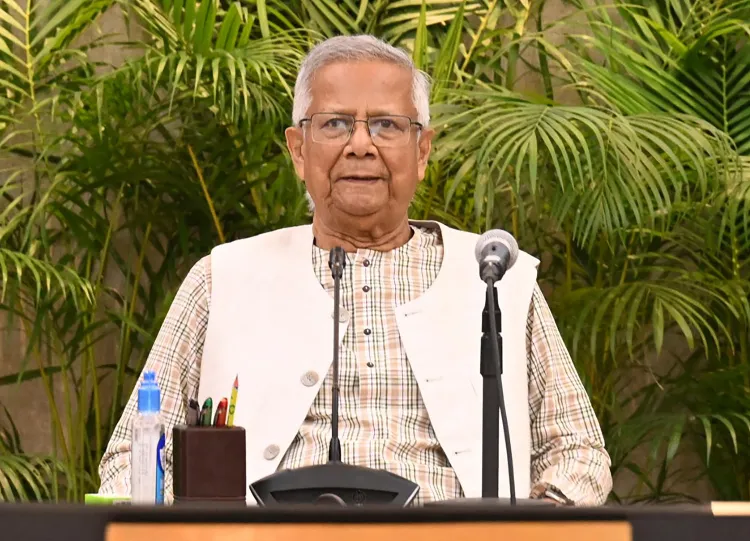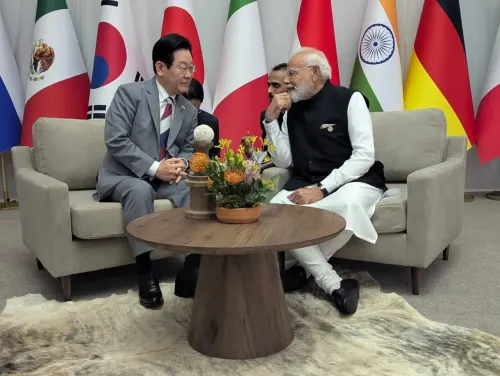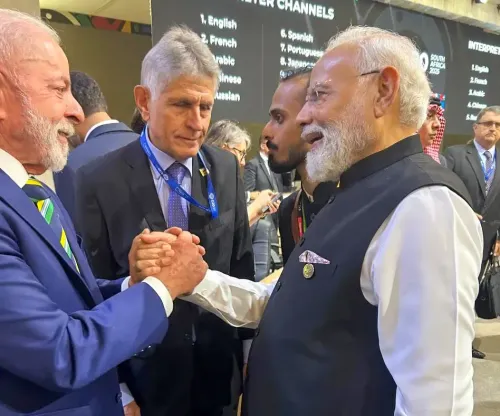Why Was an Awami League Leader Arrested on Murder Charges?

Synopsis
Key Takeaways
- Monir Hossain Mithu Kazi arrested for murder linked to protests.
- Azad Sarkar was allegedly murdered during protests in Hajiganj.
- Political tensions are escalating in Bangladesh.
- Former Prime Minister Sheikh Hasina faces legal challenges.
- Concerns over the impact on democracy persist.
Dhaka, July 3 (NationPress) In a recent development, another Awami League leader has been apprehended by law enforcement in Bangladesh on murder accusations tied to the protests of July 2024. The individual, Monir Hossain Mithu Kazi, was arrested in Fatullah, Narayanganj, on Wednesday night, as reported by the media cell of Chandpur district police.
Kazi faces charges related to the alleged murder of Azad Sarkar in Hajiganj, within Chandpur district, which occurred on August 4 of the previous year. A report from the prominent Bangladeshi daily, Prothom Alo, indicates that Sarkar was reportedly assaulted and sustained injuries in front of the municipality in the Toragarh area of Hajiganj Municipality.
Following the incident, Sarkar's son, Ahmed Kabir, who is affiliated with the Bangladesh Nationalist Party (BNP), filed a complaint at the Hajiganj Police Station on August 14, citing 15 Awami League leaders and activists along with 25 unnamed individuals as defendants.
Reports further suggest that prior to Kazi's arrest, several other party members, including Hajiganj Upazila Awami League President Helaluddin and leaders from the student wing like Shukur Alam and Mehedi Hasan, have been incarcerated concerning the same case.
Notably, some defendants in this case have already secured bail from the High Court of Bangladesh. In a broader context, there has been a persistent campaign against former Prime Minister Sheikh Hasina's Awami League, with multiple leaders recently subjected to police remand for interrogation.
The situation adds to the intensified crackdown on the Awami League under the interim government led by Muhammad Yunus. On the same day, the International Crimes Tribunal (ICT) of Bangladesh sentenced Hasina to a six-month term for contempt of court, while Shakil Akanda Bulbul, another leader from the Chhatra League, received a two-month jail sentence regarding the same matter.
Charges against them stemmed from a viral audio clip that allegedly displayed Hasina interfering in judicial affairs and threatening the tribunal. Analysts are interpreting these actions as a significant political vendetta against Hasina and her supporters, as numerous cases were filed against them shortly after her ousting in August 2024.
The abrupt removal of Hasina was perceived globally as a major blow to the democratic framework of Bangladesh, further compounded by the interim government facing heavy criticism for allegedly supporting radical Islamic factions.









